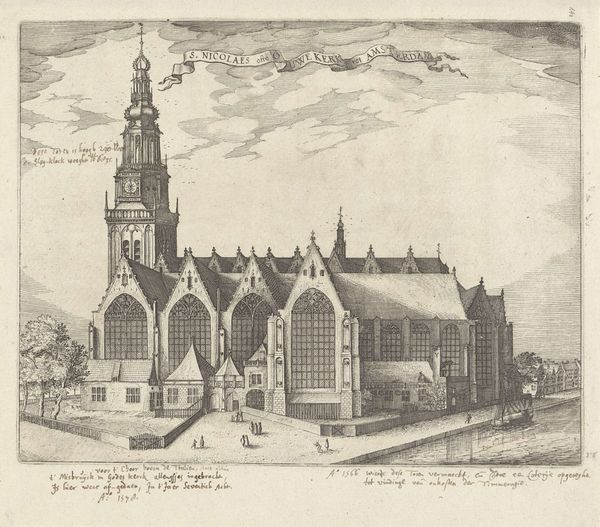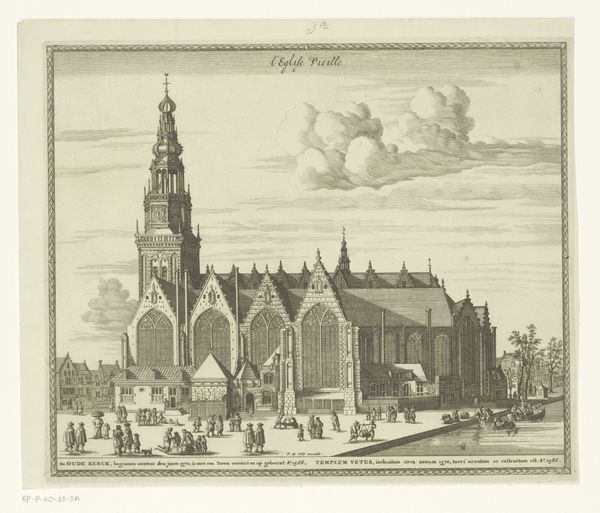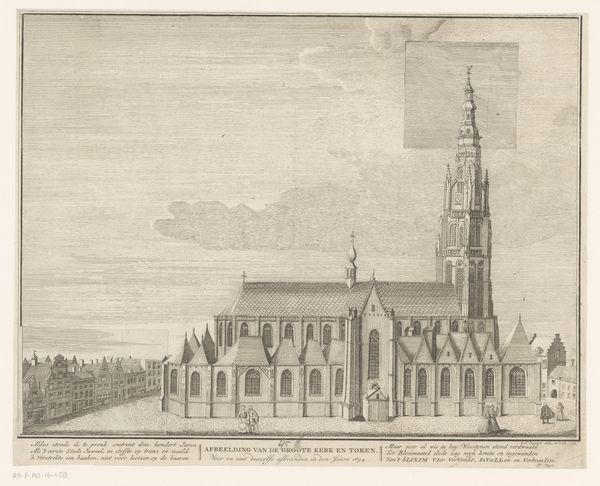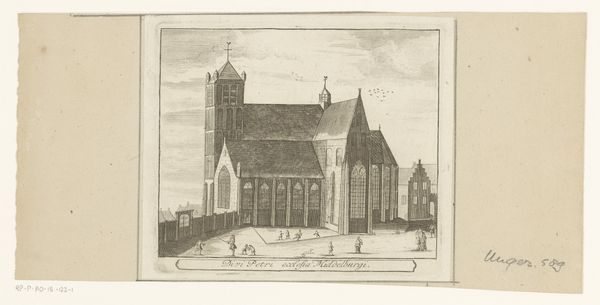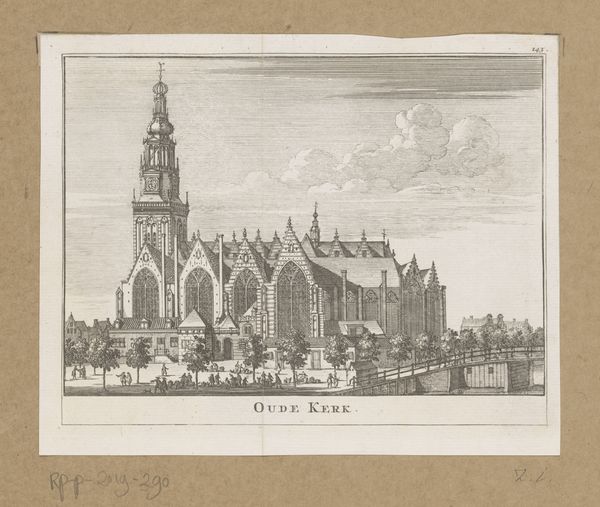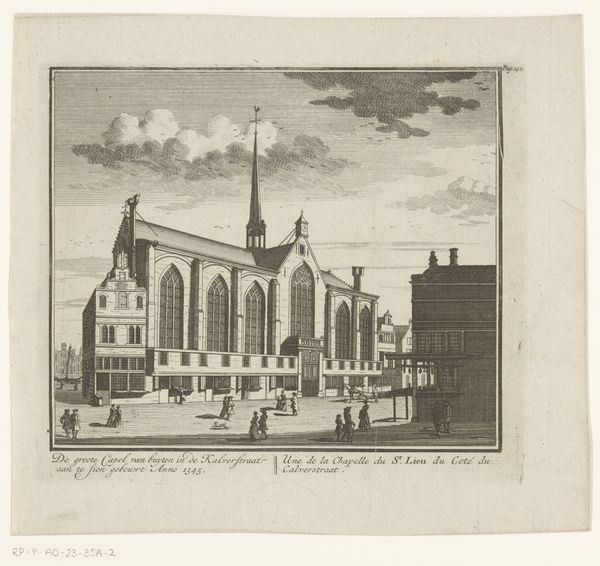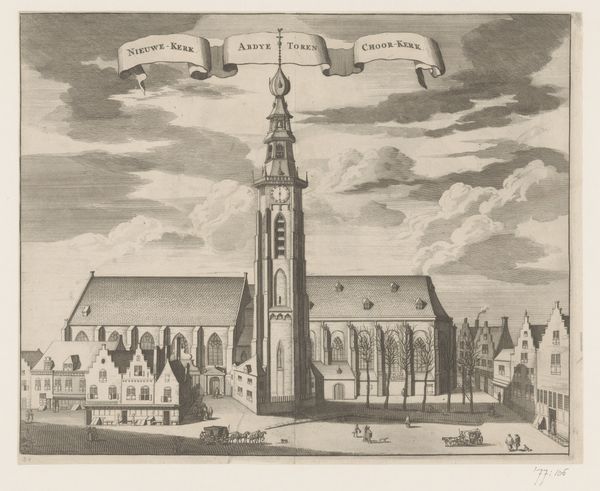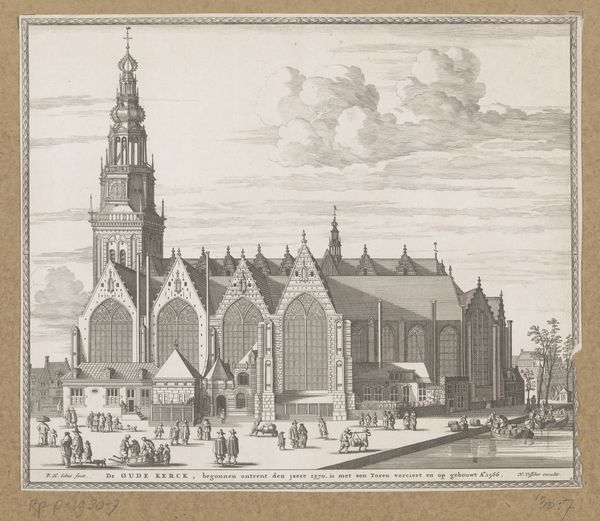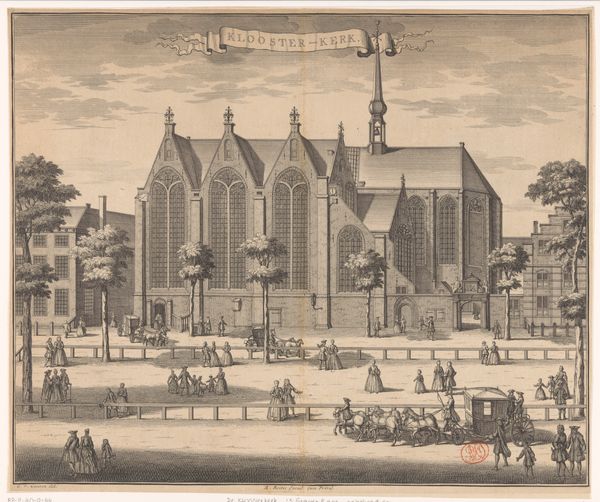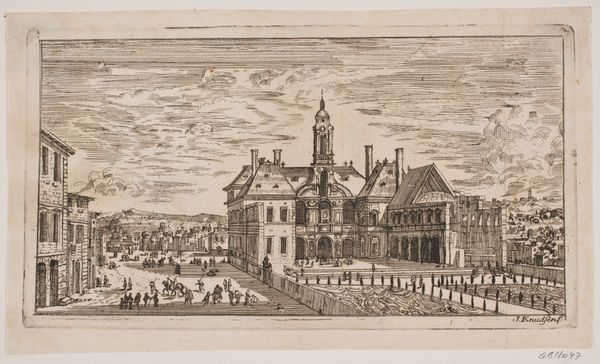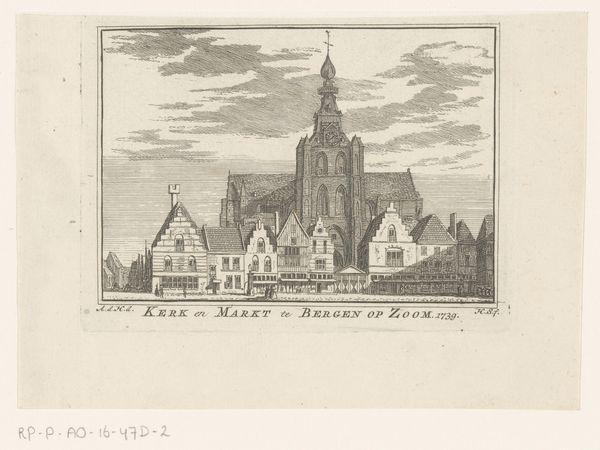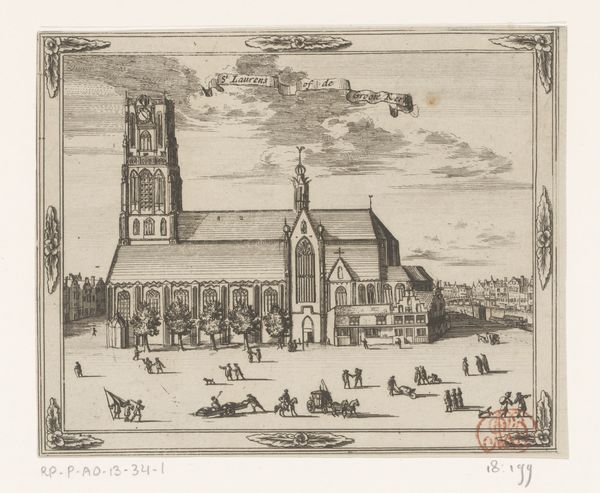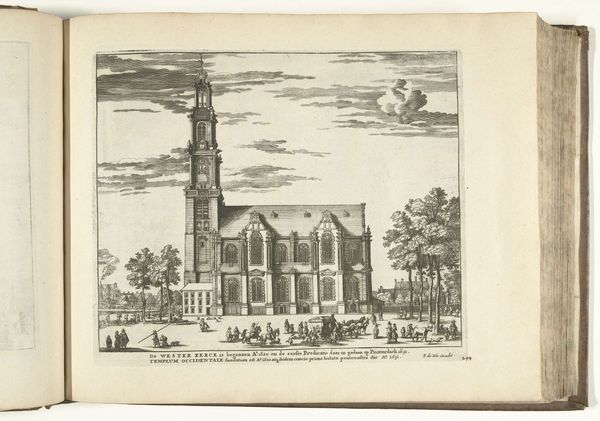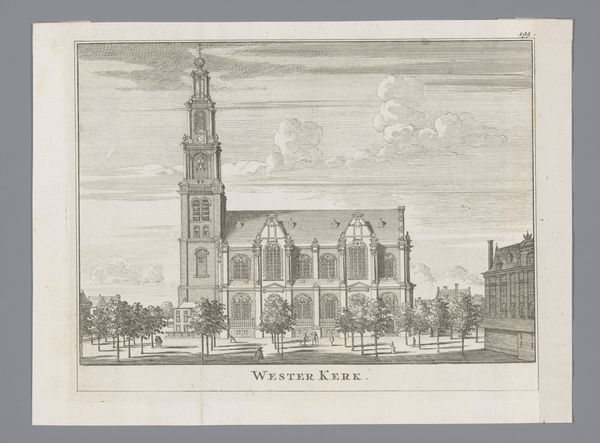
print, engraving
#
dutch-golden-age
# print
#
landscape
#
line
#
cityscape
#
engraving
Dimensions: height 240 mm, width 285 mm
Copyright: Rijks Museum: Open Domain
This print, showing the Oude Kerk in Amsterdam, was made in 1726 by an anonymous artist. The technique is etching, a printmaking process with a fascinating social dimension. Think of it: the artist would have started with a copper plate, coated with wax. Using a fine needle, they’d carefully scratch away the wax to expose the metal. Then, the plate would be submerged in acid, which bites into the exposed lines, creating grooves. Ink is then forced into these grooves, the surface wiped clean, and the image transferred to paper under immense pressure using a printing press. The incisive line we see here results from that chemical action. This method allowed for relatively quick reproduction, making images accessible to a wider public. Prints like this one fueled a growing appetite for information and visual culture, playing a key role in the burgeoning print industry and the spread of knowledge. The level of work involved in the production process shouldn't be underestimated, and invites us to acknowledge and appreciate the manual labor that is not always obvious at first glance.
Comments
No comments
Be the first to comment and join the conversation on the ultimate creative platform.
